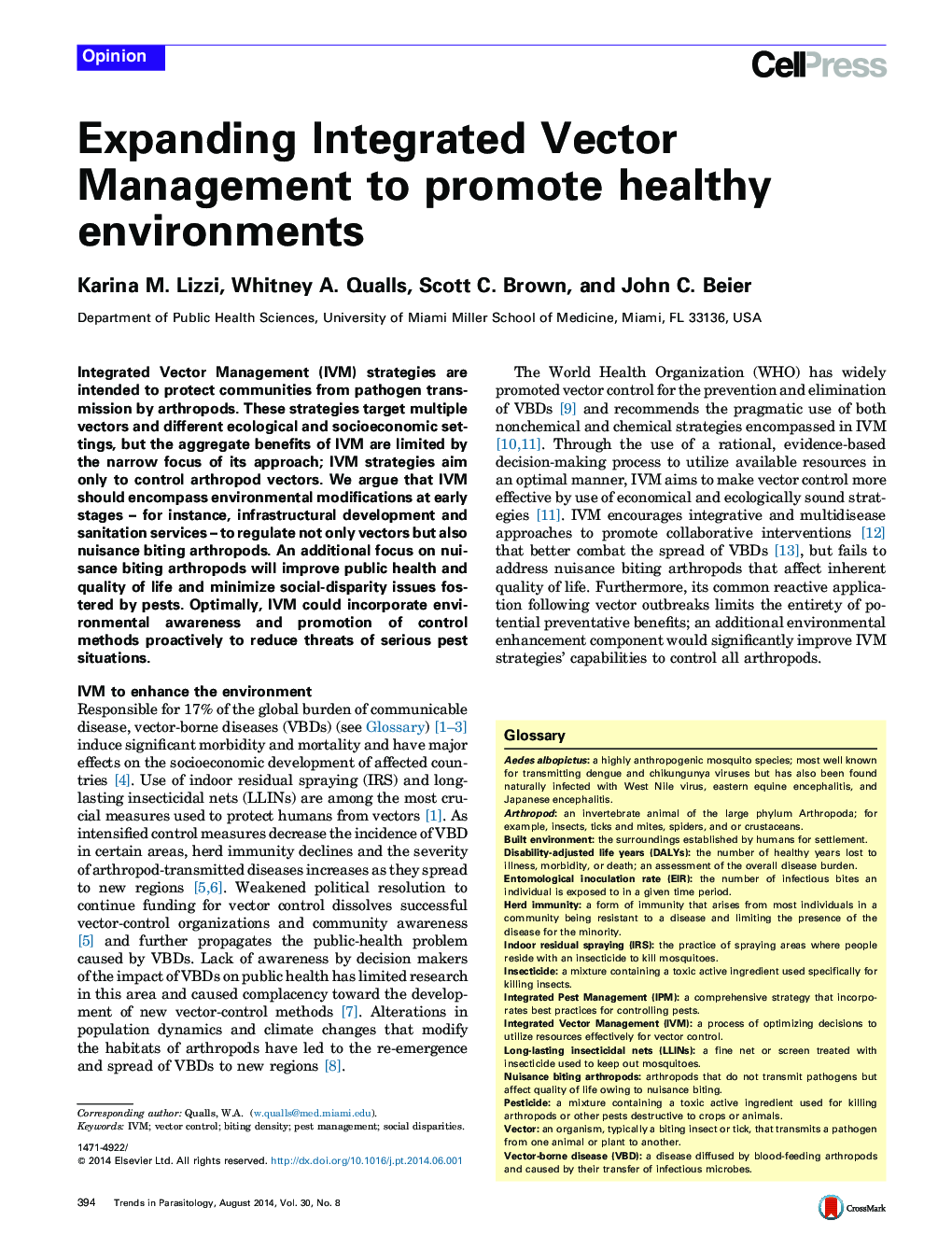| Article ID | Journal | Published Year | Pages | File Type |
|---|---|---|---|---|
| 3423016 | Trends in Parasitology | 2014 | 7 Pages |
•IVM fails to address nuisance biting arthropods.•Vector control must include an early environmental management component.•Enhancing the environment will reduce social-disparity issues created by pests.•Control measures must prevent pest and vector outbreaks to improve quality of life.
Integrated Vector Management (IVM) strategies are intended to protect communities from pathogen transmission by arthropods. These strategies target multiple vectors and different ecological and socioeconomic settings, but the aggregate benefits of IVM are limited by the narrow focus of its approach; IVM strategies aim only to control arthropod vectors. We argue that IVM should encompass environmental modifications at early stages – for instance, infrastructural development and sanitation services – to regulate not only vectors but also nuisance biting arthropods. An additional focus on nuisance biting arthropods will improve public health and quality of life and minimize social-disparity issues fostered by pests. Optimally, IVM could incorporate environmental awareness and promotion of control methods proactively to reduce threats of serious pest situations.
